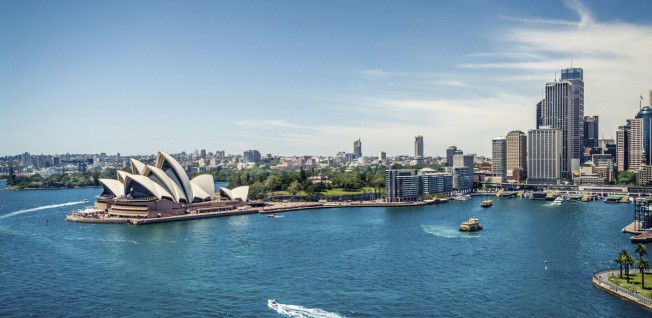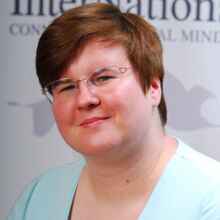The World’s Most Reputable Cities

According to a news report that recently made the international headlines, Sydney — Australia’s most populous urban center and one of the financial hubs in the Asia-Pacific region — is the most reputable city in the world. With Melbourne, yet another Australian metropolis follows close behind.
The Reputation Institute, a global research and consulting company for reputation management, came up with the 2015 top ten list of the most reputable places worldwide:
- Sydney
- Melbourne
- Stockholm
- Vienna
- Vancouver
- Barcelona
- Edinburgh
- Geneva
- Copenhagen
- Venice
How to Measure Reputation
Ever since InterNations started the Expat Insider survey, I’ve been developing a certain fascination with city and country rankings, as well as their methodology. Naturally, I got curious: what exactly does "most reputable city" mean? How do you even measure reputation? And what impact does its reputation have on the city itself — or on those living and working there?
A closer look at the report reveals how the cities were selected and which factors influenced the respective reputation score. The researchers chose more than 100 world cities according to their population figures, the GDP of the local economy, and the number of visitors they receive each year. Over 19,000 customers from the G8 countries — Canada, Germany, France, Italy, Japan, Russia, the UK, and the US — then participated in an online survey to rate these cities.
The ratings distinguish between a city’s emotional reputation (i.e. if it inspires positive feelings like admiration or trust) and its rational reputation (i.e. how people perceive such aspects as urban economy, infrastructure, or cityscape). However, it’s important to remember that the ranking isn’t based on "hard facts" (e.g. the city’s actual GDP), but on subjective perceptions. Tokyo, for example, has the highest number of inhabitants and the largest economy among the cities on the list — but landed only on rank twelve, reputation-wise.
And the perceptions that make up the final score needn’t even be based on personal, direct experience. Remember that they can also be influenced by marketing campaigns, third-party reports, and general stereotypes about these cities.
Worth Its Weight in Gold
If this list doesn’t measure the actual quality of life, what is it good for? Can prospective expats use it to choose their next destination — or could tourists be inspired to book their upcoming vacation in any of these places? Actually, it’s complicated.
The researchers also tried to determine if there’s a statistical correlation between a city’s reputation and what they call "supportive behavior". In less fancy terms: can they show a connection between reputation and people’s desire to visit a particular city, to organize an event there, to invest in a local business, etc.? Spoilers: yes, they can!
From this point of view, the ranking should mainly be of interest to municipal governments, industry associations, or the tourism sector: they usually want their city to be a "brand" that attracts foreign investors, qualified employees willing to move there, or visitors spending their hard-earned cash, for instance, in Vienna rather than Venice.
Even the ancient Romans had a saying that applies just as well to 21st-century brand management: "A good reputation is worth more than money." — Or helps to make some, anyway.

Reputation as an Indicator of Safety and Quality of Life
The average expat or tourist might be more interested in the following factoid: while the sheer size of a city or its economic output doesn’t necessarily boost its global reputation, there seems to be an overlap between the reputation ranking and other factors, namely quality of living and personal safety.
If you look at some well-known city rankings based on actual experience, like the Mercer Quality of Living Survey, this year’s top ten lists tend to look awfully similar. The cities with the best reputation are also located in countries that have "very high" or "high" safety ratings in the Global Peace Index.
Of course, I haven’t forgotten about our very own Expat Insider survey, where Austria, Switzerland, and Spain, as well as Australia and Canada, also do very well or quite well as far as their quality of life for expats is concerned. The latter two have made it among the ten most popular destinations in general, too.
When asked what they like best about living in Australia, one of our survey participants emphasized how much they enjoy their new hometown: "Melbourne is a wonderful city, full of laidback, friendly people. I enjoy the foodie places, as well as the availability of free music and arts events all year round."
Vienna received similar accolades for its quality of life from another respondent currently living in Austria: "I love the city of Vienna: it’s amazingly cultural for children and adults; it feels very safe, and the transport infrastructure is excellent."
Moreover, Denmark, Austria, and Switzerland rank among the Expat Insider’s global top ten with regard to personal safety, peacefulness, and political stability while Canada and Sweden feature among the top 20 for these three factors. Again, there’s a noticeable overlap with the countries where the world’s most reputable cities can be found.
A Eurocentric Study?
Nonetheless, I still tend to see a bit of a problem with the city reputation ranking. As mentioned above, it includes only survey respondents from G8 countries. To be more precise, the results should probably be called "the most reputable cities as seen by people in North America, Western Europe, Russia, and Japan".
This bias might also explain to a certain degree why 15 out of the top 20 cities are situated in Europe, since respondents may have been more familiar with those. Would the ranking look different if the make-up of the survey population were to be drastically expanded? Probably.
Since other countries, such as the emerging "BRICS" economies (Brazil, Russia, India, China, South Africa), have rapidly increased their impact on regional and global affairs, it would make sense to include respondents from these nations beyond Russia, too. Expats from the BRICS countries make up a sizable proportion of the Expat Insider survey population, for example.
I, for one, would love to see what they think about the world’s cities. Though Sydney does look like an awfully attractive place.











